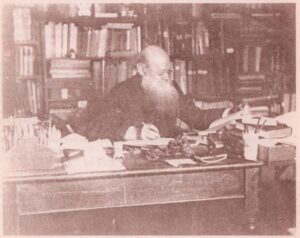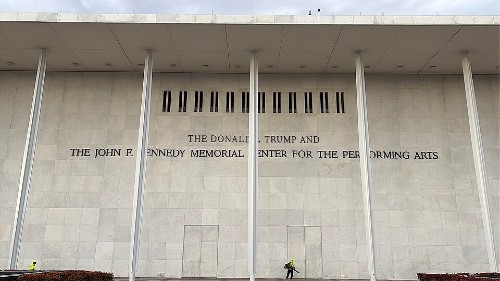
When David Brooks claims that his preferred “moderate conservative political philosophy” is in 2026 “so fantastically successful … that moderate Republicans are now the dominant force in American politics,” his intentional sarcasm is clear before the fourth paragraph of his final New York Times column (“Time to Say Goodbye,” February 1): “I’m kidding.”
Even if a reader missed out on the decades of Brooks’s commentary as resolutely as literally-frozen-in-time Futurama protagonist Philip J. Fry, its remainder would beg for the response of Fry’s snarky robotic sidekick Bender: “Oh wait, you’re serious. Let me laugh even harder.”
The very next paragraph, Brooks sees “a weird market failure” failing to provide programs addressing “the fundamental questions of life” (like Cosmos and Star Trek?) and asking “Does America still have a unifying national narrative?” without specifying when one ever existed.
To Brooks, the 2003 of his earliest op-eds was a time before widespread suspicions “that experts are not to be trusted, that elites don’t care about regular people.” He should have heeded the line in The Matrix Reloaded, as applicable to those thronging theaters that year as its in-universe insurgents, on how “we well know that the reason most of us are here is because of our affinity for disobedience.” A “faith that capitalism when left alone would produce broad and stable prosperity” would have had to explain the long-burst dot-com bubble well before the housing bubble followed (both inflated by the political patronage implied to have left it alone).
The twentieth century is at least distant enough by now to understand how Brooks’s non-total recall pigeonholes the Sixties counterculture as one “less conformist … more creative than the one that came before, though also one that was more atomized” — not one that Reason magazine’s Jesse Walker could quip “gave us both drum solos and drum circles.”
It’s even easier to recount the turn-of-the-twentieth-century Progressives moving beyond the nineteenth’s supposed “social Darwinist culture, with its individualistic, survival-of-the-fittest emphasis” that would eventually recur in “four decades of hyperindividualism” culminating in the “nihilism personified” of Donald Trump. After all, even most historians of the period ignore how many of the Progressives, rather than seeking Brooks’s “antidote to nihilism,” remained advocates of the Henry George for whom “all that is necessary for social regeneration is included in the motto of those Russian patriots sometimes called Nihilists—’Land and Liberty!'” Both sides of Georgism derived from the Herbert Spencer who insisted that far from endorsing or excusing “the rebarbarizing effects of the struggle for existence carried on by brute force,” he “had chosen the expression ‘survival of the fittest’ rather than survival of the best because the latter phrase did not cover the facts.”
Brooks acknowledges that “the Iraq war shattered America’s confidence in its own power” (while omitting his role in promoting it). Cynics who seek not “permission to embrace brutality” but what the Council for Democratic and Secular Humanism’s Tim Madigan calls “an enjoyment of worldly pleasures, and a disdain for worldly power” could warn future pundits about similar blunders.
New Yorker Joel Schlosberg is a senior news analyst at The William Lloyd Garrison Center for Libertarian Advocacy Journalism.
PUBLICATION/CITATION HISTORY
- “Bon Voyage, David Brooks (and Let Laissez-Faire Come Back!)”
by Joel Schlosberg, Mat-Su Valley Frontiersman [Wasilla, Alaska], February 9, 2026


